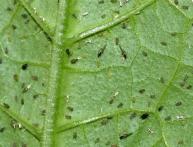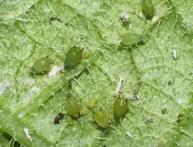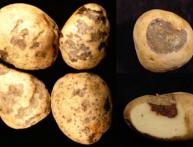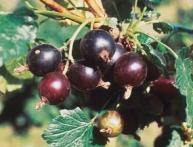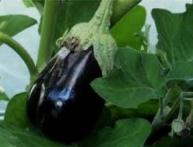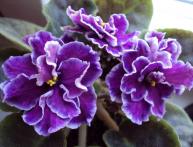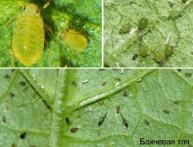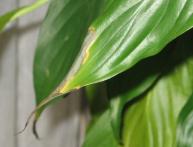Folk remedies for ants in the garden: soda, ash, ammonia, vinegar, boric acid

Ants are amazing insects; they live in families with a strict hierarchy. These small predators undoubtedly bring benefits, but most gardeners believe that the harm caused by insects is much greater, so the question of what folk remedies for ants in the garden arises quite often. Although the use of chemicals, which are offered in gardening stores, is more effective, they are resorted to, usually in cases where traditional recipes do not help.
Content:
- A little about ants: what they are, how they live, how they are useful
- What problems do ants cause?
- Folk remedies for ants on the site
- Use of wood ash
- How to use vinegar for ants in the garden and home
- Potassium permanganate
- Ammonia
- Saving the garden with boric acid
- Baking soda
- A few more folk remedies for ants in the garden
A little about ants: what they are, how they live, how they are useful
Ants are common in almost all climatic zones, with the exception of forest-tundra. They can make their homes in the ground, in the remains of decaying wood, above the ground surface. In the middle zone, stray species of insects are often found.
Research by scientists has shown that representatives of just one anthill can destroy about 2,000 eggs laid by caterpillars, flies, spider mites, and slugs within 24 hours; in addition, they actively eat the larvae of harmful insects. Ant families contribute to deep loosening of the soil, enriching it with oxygen; the humidity in the underground dwellings of ants is maintained at 90%, which is very useful for the roots of plants located nearby.
The soil in areas inhabited by ant families is enriched with phosphorus and potassium, and these elements are present in it in a form that is easily absorbed by plant roots.
What problems do ants cause?
Despite their obvious usefulness, ants breed aphids, which destroy the foliage of garden plants and sometimes even cause their death. When built close to trees, anthills depress plants; soil acidity increases over time, which also negatively affects vegetation and reduces the yield of fruit crops. In addition, ants are not averse to feasting on the nectar of flowers and ripening sweet berries. Since families of insects that have settled on a site bring both benefit and harm, the issue of combating them must be decided separately for each specific case. You should also think about what folk remedies for ants in the garden are best to use, because there are a lot of remedies invented by gardeners, and they differ in the degree of effectiveness.
Folk remedies for ants on the site
Since ants are very sensitive to odors, substances with a strong aroma can be used to combat them.In the area of ants’ homes and along the paths of their movement around the site, you can lay out:
- sawdust mixed with crushed garlic,
- leaves of anise, wormwood, parsley, tomatoes, mint, garden tobacco, elderberry flowers;
- ground cinnamon;
- a rag soaked in turpentine.
Sometimes it is recommended to douse an anthill with kerosene, but one should not forget that kerosene is a highly flammable substance; careless handling of it can cause a fire.
Use of wood ash
Ash can be sprinkled on places where insects gather, as well as on paths along which ants move. To spray trees and other plants, prepare an infusion of ash and laundry soap. Adding ash to the soil before autumn digging gives good results. Ash is not only a means of combating harmful insects, it enriches the soil with potassium, which garden crops so need.
You can also fill a dug up anthill with ashes. It should be noted that ants really don’t like being disturbed, i.e. Even deep digging of the soil at the location of the anthills can give a positive result.
How to use vinegar for ants in the garden and home
Vinegar has a fairly pungent odor that will help repel insects quickly.
A solution consisting of one spoon of vinegar and 1 liter of water should be used to wipe all areas where ants accumulate in the house; the same product can be used to treat plants in the beds. Treatments with vinegar solution must be carried out systematically. If vinegar essence is used to prepare the solution, then 1 tablespoon of it is diluted in 10 liters of water!
Potassium permanganate
Potassium permanganate can be used as a folk remedy for ants in the garden and aphids.Treating trees and other plants with a solution of potassium permanganate leads to the death of aphids. With the disappearance of the aphids, the ants will leave the area on their own. You can water anthills and the paths along which ants move with a dark solution of potassium permanganate.
Prepare a solution of potassium permanganate as follows:
water is poured into a liter jar, then potassium permanganate is added until the solution acquires a bright, rich color;
Next, take water into the bucket and gradually, stirring, add the prepared concentrate until the solution turns light pink.
A slightly colored solution can be used to spray trees.
Ammonia
It can be used not only for medical purposes.
It is used by gardeners as a means to combat ants; in addition, an aqueous solution of ammonia is a high-quality plant food. To water the area, ammonia is diluted in water in a ratio of 10 g per 10 liters of water.
Saving the garden with boric acid
Boric acid has a detrimental effect on insects, it dehydrates the body, disrupts the functioning of the digestive system, and within a few hours of entering the digestive system causes paralysis and death of the insect. Even those ants that eat the remains of their poisoned brethren will suffer.
A solution of boric acid is poured directly into the nests, or traps are set. For a glass of warm water you will need to add 5 g of boric acid, a couple of tablespoons of honey or sugar.
All components are thoroughly mixed, water is added to make a full liter jar. The solution is poured inside the anthill; it can also be poured into small caps and placed along the paths along which insects move.
Let's watch a useful video about folk remedies for ants in the garden:
Baking soda
The environment in the body of ants is acidic, but soda is an alkaline substance that can neutralize acid. When soda enters the insect's body, a chemical reaction occurs that destroys its shell. Naturally, the insect dies.
But soda does not attract ants and is not a food product for them. In order for the soda to enter the body of insects, you will need to prepare a sweet mixture. You can use sugar or powdered sugar dissolved in a small amount of water.
The bait is placed in small containers, possibly in plastic lids, and placed in places frequently visited by ants.
A few more folk remedies for ants in the garden
The following will help repel ants from garden plants:
- rags soaked in kerosene laid out under fruit bushes;
- hunting belts soaked in carbolic solution;
- Treating the base of trees with hemp oil:
- hanging sweet water bottle traps on trees;
- Sprinkling quicklime on anthill locations.
Killing aphids can be considered as an effective option for controlling ants. Branches infested with pests can simply be washed in a basin with soapy water. It is recommended to sow calendula next to fruit-bearing bushes; ladybugs are very fond of this plant, which actively destroys aphids.
For preventive purposes, it is recommended to sow tansy and parsley in the garden. The plants have a pungent odor and repel pests. As an emergency measure, we can recommend digging up an anthill. The action should be carried out at night, when all the ants gather in their house.The dug up contents of the anthill should be quickly placed in a bucket and taken away from the site. The excavation site should be watered with a solution of strong-smelling substances.
Another option for getting rid of ants using boron:
It is not easy to remove ants from the area, but it is still possible. If traditional methods do not help, you can use chemicals designed to protect plants from pests.











